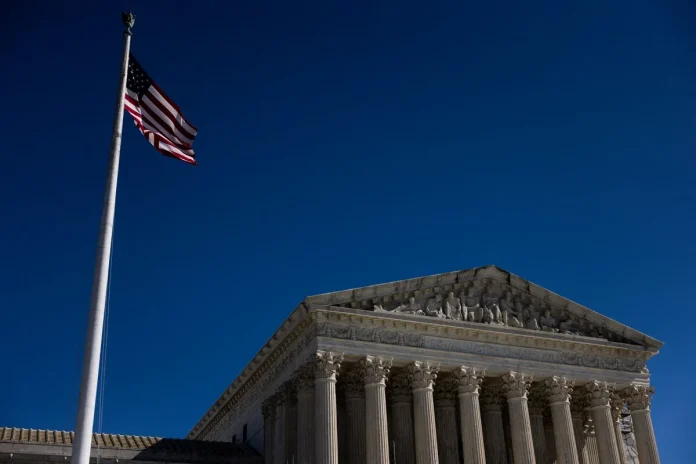The US Supreme Court will hear arguments challenging the legality of Donald Trump’s sweeping global tariffs this Wednesday
WASHINGTON: The US Supreme Court will hear arguments on Wednesday challenging the legality of Donald Trump’s unprecedented use of powers for imposing sweeping global tariffs.
Since returning to the White House, Trump has invoked emergency economic powers to impose reciprocal tariffs over trade practices Washington deemed unfair.
These tariffs target America’s biggest trading partners including Mexico, Canada and China as a key part of his America First trade policy.
A lower court ruled in May that Trump exceeded his authority when imposing these duties, although the administration’s appeal allowed them to temporarily remain in place.
The US Court of Appeals for the Federal Circuit ruled 7-4 in August that the levies were illegal, affirming the lower court’s finding.
The Supreme Court’s decision will have major ramifications, though a final ruling could take several months.
The conservative-majority Supreme Court could find the tariffs illegal, blocking duties imposed on goods from countries worldwide.
Alternatively, judges could affirm Trump’s actions, opening the door to further levies and additional trade measures.
Billions of dollars in customs revenue already collected and Trump’s efforts to leverage tariffs for favourable trade deals are also at stake.
The Supreme Court’s ruling would not directly affect sector-specific tariffs Trump imposed on steel, aluminum and automobiles.
Victor Schwartz, a lead plaintiff in this week’s hearing, said these tariffs threaten the very existence of small businesses like mine, making it difficult to survive, let alone grow.
Schwartz, founder of family-run New York wine company VOS Selections, added he was shocked that those with much more power and money did not step up.
Pointing to Trump’s fast-changing tariff policies, Schwartz told reporters that small firms were gambling with our livelihoods, trying to predict the unpredictable.
Another New York-based business owner Mike Gracie, who imports hand-painted wallpaper from China, said Trump’s steep tariffs meant hundreds of thousands of dollars in new costs.
Gracie told AFP they didn’t want to risk our business by raising prices but we can’t continue indefinitely to absorb them.
Kent Smetters of the University of Pennsylvania noted that 40% of US imports are intermediate goods not intended for retail consumers.
Smetters warned that maintaining tariffs means US businesses become less competitive in global markets.
Ryan Majerus, a former US trade official, told AFP the court could support or block Trump’s global tariffs or allow their imposition with certain limitations.
Majerus, a partner at law firm King & Spalding, said the ruling could differentiate between reciprocal tariffs and others imposed to crack down on fentanyl.
Even if the top court found Trump’s global tariffs illegal, the administration could tap other laws to impose 15% tariffs for 150 days.
Majerus said the administration could pursue investigations for more durable tariffs like those under Section 301 of the Trade Act.
Because of these options, Majerus expects partners that have negotiated tariff deals with Trump might prefer to keep those terms.
Smetters said the case has bearing on wider presidential authorities beyond just tariff policy.
Smetters asked if the court really allows this to happen, then the question is, what else can the administration do without congressional approval.
He added that expanded executive power might spook capital markets a bit more. – AFP








